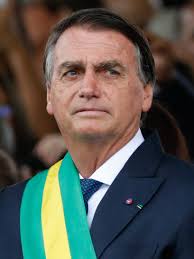
Introduction
Jair Bolsonaro, the former president of Brazil, has been a polarizing figure in the nation’s contemporary political landscape. Known for his right-wing populism, Bolsonaro’s presidency, which lasted from January 2019 to December 2022, was marked by controversies over environmental policies, human rights issues, and management of the COVID-19 pandemic. As Brazil moves forward, understanding his ongoing influence is crucial for assessing the future of Brazilian politics.
Recent Developments
Since leaving office, Bolsonaro’s presence has continued to loom large over Brazil’s political scene. In the recent elections held in October 2022, his far-right agenda resonated with a significant portion of the electorate, despite losing to his leftist rival, Luiz Inácio Lula da Silva. Following the elections, Bolsonaro’s supporters engaged in mass protests, questioning the legitimacy of the electoral process. This unrest highlighted the deep divisions within Brazilian society and underscored Bolsonaro’s enduring support among certain demographics, particularly rural voters and members of the military.
Bolsonaro’s post-presidency has been characterized by his ongoing criticisms of the current government and allegations of corruption against Lula, echoing sentiment from his campaign. He has been vocal on social media platforms about his intentions to remain active in Brazilian politics, indicating a potential run for the presidency in 2026 which adds an intriguing dynamic to the political landscape.
Challenges Ahead
The political environment in Brazil is evolving as Bolsonaro navigates these challenges. The Lula administration is focusing on restoring environmental protections and social policies that were scaled back during Bolsonaro’s tenure. However, Bolsonaro’s supporters are likely to remain vocal, raising questions about the durability of Lula’s policies and the potential for political conflicts ahead.
Furthermore, legal issues are looming over Bolsonaro as investigations into his actions during his presidency and the January 8, 2023, riots at the Brazilian National Congress continue. These investigations could impact his political career and influence his base’s loyalty, shaping the trajectory of Brazil’s political future.
Conclusion
The significance of Jair Bolsonaro’s political career extends beyond his time in office, influencing Brazil’s current affairs and public sentiment. As the country navigates through divisions and reevaluates its political priorities, Bolsonaro’s role as a former president will remain critical in understanding the dynamics of Brazilian governance. The potential for his return to the political forefront in 2026 should not be underestimated, as it could significantly impact Brazil’s legislative framework and social fabric.



